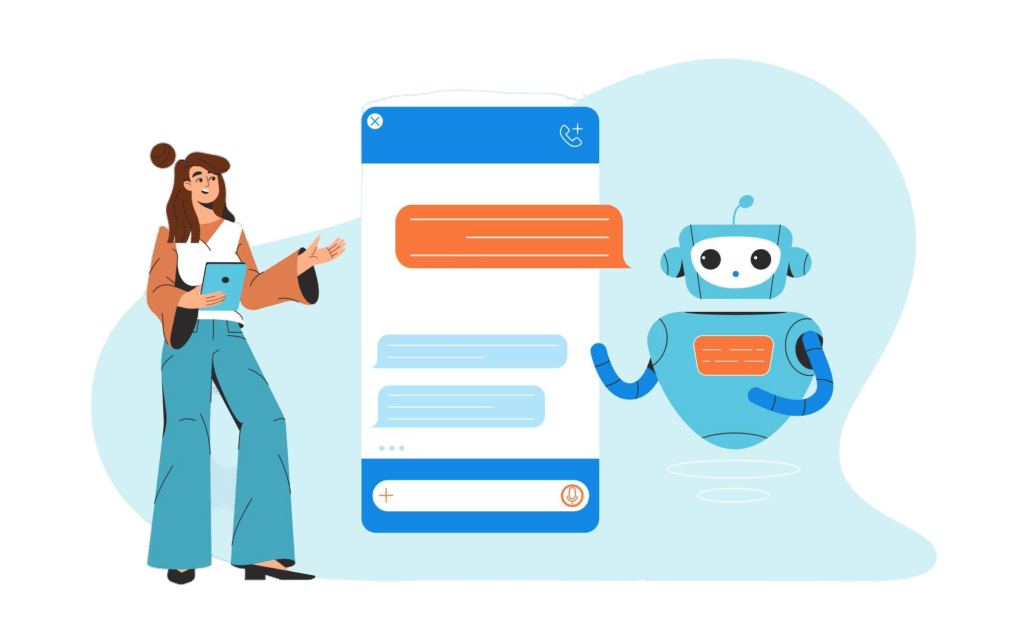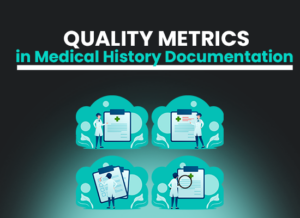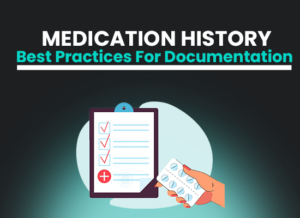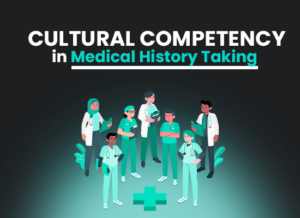Why Systematic Automation in Healthcare is Time-Efficient and Cost-Saving
- October 24, 2024

Table of Contents
In the ever-evolving landscape of healthcare, technology has become a cornerstone for enhancing patient care and streamlining operational processes. SaaS automation in healthcare leverages cloud-based platforms to seamlessly integrate artificial intelligence (AI) and automation into hospitals and clinics. This integration optimizes various healthcare processes, ensuring that providers can deliver high-quality care without the complexities of managing extensive IT infrastructure.
What is Automation in Healthcare?
Automation in healthcare refers to the use of technology to perform tasks that would otherwise require human intervention. By utilizing cloud-based Software as a Service (SaaS) platforms, healthcare organizations can incorporate AI and automation into their daily operations effortlessly. These platforms enable the automation of both administrative and clinical tasks, ranging from patient management to diagnostic procedures. The result is a more efficient healthcare system where providers can focus more on patient care and less on repetitive administrative duties.

Automation encompasses various aspects of healthcare, including workflow automation in healthcare, business process automation in healthcare, and intelligent automation in healthcare. Each of these areas contributes to reducing manual workload, minimizing errors, and enhancing overall efficiency within healthcare institutions.
Try it - Love it - Buy it
Avail Our Free Trial Now!

Why SaaS Matters for Healthcare?
SaaS solutions are revolutionizing the healthcare sector by addressing several critical challenges:
1- Cost Reduction:
Traditional healthcare systems often require substantial investments in IT infrastructure, including hardware, software, and maintenance. SaaS eliminates these upfront costs by offering cloud-based services that are subscription-based, allowing healthcare organizations to allocate resources more effectively.
2- Streamlined Operations:
Automation through SaaS simplifies various operational processes such as appointment scheduling, billing, and patient communications. This streamlining enhances efficiency and reduces the likelihood of human error, leading to more reliable and consistent service delivery.
3- Scalability:
Healthcare organizations are dynamic entities that often need to scale their services to accommodate growing patient volumes or expanding specialties. SaaS platforms offer unparalleled scalability, enabling organizations to adjust their service capacity without significant additional investments or disruptions.
The automation in the healthcare industry is projected to reach $88 billion by 2027, underscoring the significant impact SaaS will have on the sector. SaaS-driven automation facilitates quicker implementation, reducing the need for costly infrastructure upgrades while simultaneously improving patient care through optimized workflows and reduced administrative burdens. This rapid deployment ensures that healthcare providers can adapt swiftly to changing demands, enhancing their ability to deliver timely and effective care.
SaaS-driven automation provides quicker implementation, reducing the need for costly infrastructure upgrades while improving patient care. By leveraging these solutions, healthcare organizations can enhance operational capabilities, reduce manual errors, and foster a more patient-centric environment.
SaaS Solutions for Workflow Automation in Healthcare:
Workflow Automation in Healthcare:
Workflow automation in healthcare involves the use of SaaS solutions to manage and execute routine administrative tasks automatically. These tasks include appointment scheduling, billing, and patient communications, which are essential for the smooth operation of healthcare facilities but can be time-consuming and prone to errors when handled manually.
By automating appointment bookings and rescheduling, SaaS platforms minimize errors, ensure timely appointments, and enhance overall efficiency. This automation leads to faster service delivery, fewer delays, and improved communication between patients and healthcare providers. Consequently, patients experience quicker access to care, reduced wait times, and a more streamlined interaction with healthcare services.
Additionally, workflow automation in healthcare extends to managing patient records and coordinating care among different departments. Automated systems ensure that patient information is accurately recorded and readily available to authorized personnel, facilitating seamless transitions between various stages of care and improving the overall patient experience.
Workflow Automation in Healthcare:
Business process automation in healthcare leverages SaaS platforms to streamline complex administrative tasks, particularly in billing and claims processing. Integrating these platforms with existing systems ensures that financial transactions are handled accurately and efficiently, reducing the likelihood of errors that can lead to financial discrepancies and delays.
Automating billing and claims processing ensures seamless interactions for patients, accurate billing, and quicker insurance claims processing. This not only enhances patient trust and satisfaction but also optimizes the financial operations of healthcare organizations. Efficient billing systems reduce the administrative burden on staff, allowing them to focus more on patient care and less on managing financial transactions.
Furthermore, business process automation in healthcare supports compliance with regulatory requirements by maintaining accurate records and generating detailed reports. This compliance ensures that healthcare organizations meet industry standards and avoid potential legal issues related to financial management and patient billing.
Patients enjoy seamless interactions, accurate billing, and quicker insurance claims, fostering a more trustworthy and reliable relationship with their healthcare providers.
Intelligent Automation and AI in SaaS-Driven Healthcare Platforms:

AI Automation in Healthcare Diagnostics:
AI automation in healthcare diagnostics represents a significant advancement in medical technology. SaaS solutions such as Smart Medical History utilize AI to analyze vast amounts of patient data, improving the accuracy and speed of diagnoses. By automating diagnostic processes, these platforms enable healthcare providers to deliver quicker and more precise diagnoses, reducing waiting times and alleviating patient anxiety related to health uncertainties.
AI-driven diagnostic tools can process complex imaging data, identify patterns, and detect anomalies that may be missed by the human eye. This enhanced accuracy ensures that patients receive reliable and timely medical assessments, leading to faster initiation of treatments and better health outcomes. Additionally, AI automation continuously learns and improves from new data, making the diagnostic processes more robust and adaptive to emerging medical insights.
The integration of AI and automation in healthcare also facilitates predictive diagnostics, where potential health issues are identified before they become critical. This proactive approach allows for early interventions, significantly improving patient prognosis and reducing the overall burden on healthcare systems.
Patients benefit from quicker, more accurate diagnoses, reducing waiting times and anxiety about their health. The reliability of AI-driven diagnostics ensures that patients receive timely and effective treatments, enhancing their overall healthcare experience.
Personalized Care with AI and Automation:
Personalized care with AI and automation allows SaaS platforms to tailor treatment plans based on individual patient histories and medical data. By analyzing comprehensive patient data, SaaS platforms can create customized care plans that address the unique needs of each patient.
This personalized approach not only improves treatment outcomes but also increases patient satisfaction by ensuring that care is specifically tailored to their conditions. Personalized care enhances the overall healthcare experience, making patients feel valued and understood, which is crucial for their engagement and adherence to treatment plans.
Moreover, intelligent automation in healthcare enables continuous monitoring and adjustment of treatment plans based on real-time data. This dynamic approach ensures that patients receive the most effective and up-to-date care, further improving health outcomes and patient trust in their healthcare providers.
Patients receive personalized care, improving the effectiveness of treatments and health outcomes. This level of customization ensures that each patient’s unique medical needs are met, fostering a more responsive and effective healthcare system.
Robotic Process Automation in SaaS Platforms for Healthcare:
What is Robotic Process Automation in Healthcare?
Robotic Process Automation (RPA) in healthcare involves the use of software robots to handle routine administrative tasks such as patient registration, billing, and data entry. SaaS-based RPA solutions streamline these processes, significantly reducing the burden on healthcare staff and minimizing the risk of human error. By automating these tasks, healthcare providers can ensure that services are delivered more quickly and accurately, enhancing the overall patient experience.
RPA can handle high-volume, repeatable tasks with precision, freeing up healthcare professionals to focus on more complex and patient-centric activities. This shift not only improves operational efficiency but also contributes to higher job satisfaction among healthcare staff by reducing burnout associated with repetitive tasks.
In addition to administrative tasks, RPA can be applied to manage inventory, process insurance claims, and handle patient follow-ups. These applications ensure that healthcare organizations operate smoothly and efficiently, providing patients with reliable and timely services.
Patients enjoy quicker service, reduced billing errors, and streamlined care coordination as RPA takes over the time-consuming administrative duties that once slowed down the healthcare process.
Robotic Process Automation Use Cases in SaaS for Healthcare:
Real-world applications of robotic process automation in healthcare include automating claims processing and managing patient records through cloud-based SaaS platforms. These use cases lead to smoother administrative processes, faster claims approval, and fewer delays in receiving care.
For instance, automating claims processing ensures that insurance claims are submitted accurately and processed quickly, reducing the waiting time for patients to receive reimbursements. Managing patient records through RPA ensures that information is consistently updated and easily accessible, facilitating better coordination among healthcare providers.
By implementing RPA, healthcare organizations can ensure that administrative tasks are handled seamlessly, allowing staff to focus more on patient care and improving the efficiency of healthcare delivery. This automation not only enhances operational efficiency but also contributes to higher patient satisfaction by reducing wait times and administrative errors.
Patients experience smoother administrative processes, faster claims approval, and fewer delays in receiving care, making their interactions with healthcare providers more efficient and less stressful.
Enhancing Patient Engagement through SaaS Automation in Healthcare:
Automated Patient Communication Tools:
Automated patient communication tools play a crucial role in maintaining continuous engagement between patients and healthcare providers. SaaS platforms automate patient reminders, follow-ups, and appointment confirmations, ensuring that patients remain connected to their care plans with minimal effort.
This automation enhances patient adherence to treatment plans and increases overall satisfaction by keeping patients informed and engaged in their healthcare journey. Consistent communication helps patients stay on track with their treatments and feel supported throughout their healthcare experience.
Automated communication tools also enable personalized interactions, where messages can be tailored based on individual patient needs and preferences. This personalization fosters a stronger patient-provider relationship, encouraging patients to actively participate in their own care and follow through with prescribed treatments.
Patients stay connected to their care plans with minimal effort, improving adherence and satisfaction. This continuous engagement is essential for successful treatment outcomes and long-term patient well-being.
Telemedicine and Remote Monitoring with SaaS:
Telemedicine and remote monitoring, powered by SaaS-driven platforms, enable healthcare providers to offer quality care from the comfort of patients’ homes. This is especially beneficial for patients with chronic conditions, as remote monitoring reduces the need for frequent hospital visits and improves their quality of life.
By facilitating remote interactions, SaaS platforms ensure that patients receive consistent and comprehensive care, enhancing their overall healthcare experience. Remote monitoring allows for real-time tracking of vital signs and health metrics, enabling timely interventions and adjustments to treatment plans as needed.
Additionally, telemedicine platforms support virtual consultations, making healthcare more accessible to patients in remote or underserved areas. This accessibility ensures that all patients have equal opportunities to receive timely and effective care, regardless of their geographical location.
Patients with chronic conditions benefit from remote monitoring, reducing the need for hospital visits and improving their quality of life. This technology empowers patients to manage their health proactively, leading to better health outcomes and increased patient satisfaction.
How SaaS Automation in Healthcare Improves Patient Safety?
Automated Medication Management with SaaS Solutions:
Automated medication management systems reduce medication errors by automating the dispensing process. SaaS-based RPA ensures that patients receive the correct medication at the right time, minimizing the risk of adverse drug events.
This level of precision enhances patient safety by ensuring accurate medication administration and timely delivery, thereby reducing potential health risks associated with medication errors. Automated medication management systems also provide healthcare providers with real-time data on medication usage, allowing for better monitoring and management of patient treatments.
Furthermore, these systems can integrate with electronic health records (EHRs) to provide comprehensive medication histories, preventing harmful drug interactions and ensuring that patients receive safe and effective treatments tailored to their specific needs.
Patients are safer, receiving the correct medication at the right time, minimizing the risk of adverse drug events. This reliability fosters trust in healthcare providers and enhances the overall quality of care.
AI-Powered Diagnostics for Error Reduction:
AI-powered diagnostics leverage SaaS platforms to reduce diagnostic errors in imaging and other diagnostic processes. By analyzing diagnostic data with high accuracy, these platforms ensure that patients receive reliable diagnoses, leading to timely and appropriate treatments.
Patients benefit from faster and more reliable diagnoses, which facilitate timely interventions and improve overall health outcomes. AI-powered diagnostics also support healthcare providers by offering advanced analytical tools that enhance the accuracy and efficiency of diagnostic procedures.
Moreover, these platforms can continuously learn from new data, improving their diagnostic capabilities over time. This ongoing improvement ensures that diagnostic processes remain up-to-date with the latest medical advancements, providing patients with the highest standard of care.
Patients receive faster and more reliable diagnoses, leading to timely treatments and better outcomes. The precision of AI-powered diagnostics significantly reduces the chances of misdiagnosis, ensuring that patients receive the appropriate care they need promptly.
Data Security and Compliance in SaaS Healthcare Solutions:

SaaS Data Security in Healthcare Automation:
Data Security is paramount in healthcare, and SaaS platforms address this by implementing robust security of Smart Medical History, measures such as encryption, access control, and compliance with regulations like HIPAA. These platforms ensure that patient data is protected against unauthorized access and breaches.
Patients can trust that their personal health data is secure, reducing concerns about privacy breaches and fostering a sense of confidence in their healthcare providers. Robust data security measures also ensure that healthcare organizations comply with legal and regulatory requirements, safeguarding both patient information and organizational integrity.
In addition to these measures, SaaS platforms often provide regular security updates and monitoring to detect and respond to potential threats promptly. This proactive approach to data security ensures that patient information remains protected in an increasingly digital healthcare environment.
Patients trust that their personal health data is secure, reducing concerns about privacy breaches. This trust is essential for maintaining strong patient-provider relationships and ensuring that patients feel safe sharing sensitive health information.
Ensuring Data Integrity with SaaS Automation:
Data integrity is maintained through automated audit trails in SaaS healthcare platforms, ensuring the accuracy of patient records. These platforms ensure that health records are consistently accurate and secure, facilitating continuity of care without errors.
Accurate and secure health records benefit patients by ensuring that their medical information is reliable, which is essential for informed medical decisions and effective healthcare delivery. Maintaining data integrity also supports seamless communication between different healthcare providers, enhancing the overall quality of care.
Moreover, automated audit trails provide a transparent and accountable system for tracking changes to patient records, ensuring that any modifications are documented and verifiable. This transparency is crucial for maintaining trust between patients and healthcare providers and for ensuring compliance with regulatory standards.
Patients benefit from accurate and secure health records, ensuring continuity of care without errors. Reliable data integrity allows healthcare providers to make informed decisions based on precise and up-to-date patient information.
Benefits of SaaS Automation in Healthcare:
Cost Savings and Efficiency with SaaS:
Automation in healthcare through SaaS offers significant benefits, including reducing infrastructure costs, improving operational efficiency, and scaling services as needed. By eliminating the need for extensive IT infrastructure, SaaS solutions like Smart Medical Histroy for enterprises, lower operational costs, allowing healthcare organizations to allocate resources more effectively.
Improved operational efficiency is achieved by streamlining workflows and reducing administrative burdens, leading to faster service delivery and better care coordination. Scalability ensures that healthcare providers can expand their services to meet growing demands without substantial additional investments, maintaining high levels of patient care even during periods of growth.
These benefits translate to patients experiencing faster service, improved care coordination, and better access to healthcare services. The streamlined operations enable healthcare providers to respond more quickly to patient needs, enhancing the overall patient experience and satisfaction.
Patients experience faster service, improved care coordination, and better access to healthcare. These enhancements ensure that patients receive timely and effective care, contributing to better health outcomes and higher levels of satisfaction.
SaaS-Driven Automation in Hospitals:
SaaS-powered automation in hospitals and healthcare settings streamlines workflows, leading to better patient care and improved hospital efficiency. By leveraging these solutions, healthcare providers can deliver faster care, communicate more effectively, and achieve enhanced health outcomes.
Patients enjoy quicker care delivery, better communication with healthcare providers, and enhanced health outcomes as a result of streamlined operations. The efficiency gains from SaaS-driven automation ensure that hospitals can handle higher patient volumes without compromising the quality of care, leading to a more responsive and patient-centric healthcare environment.
Furthermore, automated systems support better resource management, ensuring that medical supplies and personnel are utilized optimally. This effective management contributes to a more sustainable and resilient healthcare system, capable of adapting to varying patient demands and emergencies.
Patients enjoy faster care delivery, better communication, and enhanced health outcomes. These improvements ensure that patients receive timely and effective treatments, fostering a more efficient and responsive healthcare system.
Future of SaaS Automation in Healthcare:
Predictive Analytics in Healthcare with SaaS Solutions:
Predictive analytics in healthcare, powered by SaaS platforms, can anticipate patient health needs and offer personalized care. By analyzing data trends and patient history, these platforms enable proactive interventions, preventing health issues before they become serious.
Patients receive proactive and customized care, which helps in preventing health issues and enhances their overall well-being. Predictive analytics also support healthcare providers in identifying potential health risks early, allowing for timely and effective treatments that can significantly improve patient outcomes.
Additionally, predictive analytics can optimize resource allocation by forecasting patient admission rates and identifying areas that may require additional support. This foresight ensures that healthcare organizations are better prepared to meet patient needs, improving service delivery and patient satisfaction.
Patients receive proactive, customized care, preventing health issues before they become serious. This early intervention approach not only improves individual health outcomes but also contributes to the overall efficiency and effectiveness of the healthcare system.
AI-Driven Chatbots and Fully Automated Hospitals:
The future of healthcare includes AI-driven chatbots and fully automated hospitals, powered by SaaS solutions. These innovations promise more accessible and efficient healthcare services, reducing the time patients spend waiting for care and enhancing the overall patient experience.
AI-driven chatbots can handle routine inquiries and provide immediate assistance, freeing up healthcare staff to focus on more complex tasks. These chatbots can schedule appointments, answer common medical questions, and provide reminders for medication and follow-up visits, ensuring that patients receive timely and accurate information.

Fully automated hospitals take automation to the next level by optimizing every aspect of healthcare delivery, from patient intake to treatment and discharge processes. These hospitals utilize integrated SaaS platforms to manage workflows, coordinate care, and ensure seamless communication among different departments. This level of automation enhances operational efficiency, reduces errors, and ensures that patients receive comprehensive and coordinated care.
Patients will benefit from more accessible healthcare services, increased efficiency in service delivery, and reduced waiting times, making healthcare more responsive and patient-centric. AI-driven chatbots and fully automated hospitals represent a significant leap forward in delivering high-quality, efficient, and patient-focused healthcare services.
Implementing SaaS Automation in Healthcare: A Practical Guide
Assessing Automation Opportunities:
Healthcare providers should begin by assessing key areas such as patient management, billing, and scheduling to identify opportunities for SaaS-based automation improvements. This assessment helps in understanding specific needs and challenges, ensuring that the chosen SaaS solutions effectively address them.
By identifying these opportunities, patients benefit from more efficient services, faster care, and improved accuracy in administrative processes. A thorough assessment ensures that automation efforts are targeted and effective, leading to meaningful improvements in both operational efficiency and patient care.
Evaluating current workflows and identifying bottlenecks is crucial in this process. Healthcare organizations can conduct detailed analyses to determine which tasks are most time-consuming and error-prone, prioritizing automation initiatives that will have the most significant impact on patient care and operational efficiency.
Patients benefit from more efficient services, faster care, and improved accuracy in administrative processes. This targeted approach ensures that automation efforts directly enhance the quality of patient care and the overall efficiency of healthcare operations.
Choosing the Right SaaS Platform for Automation:
Selecting the right SaaS platform is crucial for successful automation. Providers should focus on platforms that support AI automation in healthcare, emphasizing scalability, data security, and ease of use. Scalability ensures that the platform can grow with the organization, adapting to increasing demands and expanding services without significant additional investments.
Data security is essential to protect patient information and comply with regulatory requirements, while ease of use ensures that healthcare staff can adopt and utilize the platform effectively. Choosing the appropriate platform ensures that patients experience seamless care delivery, even during system upgrades or transitions, maintaining high levels of service quality and reliability.
Healthcare organizations should also consider the integration capabilities of SaaS platforms, ensuring that they can seamlessly connect with existing systems and technologies. This integration is vital for maintaining continuity of care and ensuring that all aspects of patient management are synchronized and efficient.
Patients experience seamless care delivery, even during system upgrades or transitions. This reliability ensures that patients continue to receive uninterrupted care, fostering trust and satisfaction with their healthcare providers.
Training for SaaS Implementation:
Comprehensive training for healthcare staff is essential to ensure a smooth transition to SaaS-driven automation. Training programs should cover system functionalities, best practices for using the new systems, and strategies for troubleshooting common issues. Well-trained staff can effectively utilize SaaS platforms, minimizing disruptions and ensuring that patients receive uninterrupted, high-quality care during the transition process.
Effective training also fosters a culture of continuous improvement, encouraging staff to leverage the full capabilities of SaaS solutions to enhance patient care and operational efficiency. This preparedness ensures that the benefits of automation are fully realized, leading to sustained improvements in healthcare delivery.
Additionally, ongoing support and refresher training sessions can help staff stay updated with new features and updates, ensuring that the SaaS platforms are used to their fullest potential. This continuous learning approach helps in maintaining high standards of care and operational excellence.
Patients experience uninterrupted, high-quality care during the transition process. The well-trained staff ensures that the implementation of SaaS automation is smooth and that patients do not experience any disruptions in their care.
Subscribe to our Newsletter!
Subscribe our Newsletter to stay updated

Conclusion: SaaS Automation is the Future of Healthcare
SaaS automation in healthcare offers a multitude of benefits, including improved patient care, reduced errors, and enhanced operational efficiency. By leveraging cloud-based platforms, healthcare providers can streamline workflows, personalize care, and ensure data security, all while reducing costs and increasing scalability.
As the healthcare industry continues to evolve, adopting SaaS solutions for automation will be essential for delivering better patient outcomes and maintaining a competitive edge in an increasingly technology-driven landscape. Healthcare providers are encouraged to embrace SaaS automation to enhance their services, ensuring that patients receive timely, accurate, and personalized care. The future of healthcare lies in the seamless integration of SaaS automation, making it an indispensable tool for modern healthcare organizations.
Patients stand to gain from the enhanced efficiency and accuracy brought about by SaaS automation. With faster service delivery, improved communication, and more personalized care, the overall healthcare experience becomes more satisfying and effective, leading to better health outcomes and higher patient satisfaction.
Read More Blogs
See what’s trending in the medical world with our blogs.



